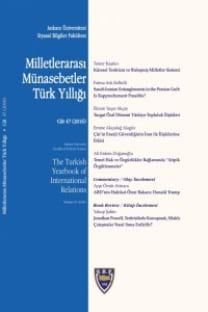Illicit Adventures of Rawlinson: British Intelligence in the Final Phase of the Ottoman Empire
Historians have usually tended either to ignore intelligence altogetheror to treat it as of little importance. Many important accounts of the 20thcentury political history do not even mention the names of the intelligenceservices. This can partly be explained by the diffıculty of researching theintelligence records. The bulk of the relevant records have been destroyed orelse retained indefinitely by the governments. It is not easy to redress thebalance. Only a careful search of the papers can produce even a fragmentaryrun of documents on the topic. There is also a desire not to be regarded as onthe same level as the inaccurate sensationalism of many bestselling accountsof espionage.intelligence does not win wars. It does not shape foreign policy.Nonetheless, intelligence activities are an inseparable part of the policymaking process. On might think of the intelligence game conducted in thecontext of various paradigms of international relations. It is one cog in themighty machine of command, an accessory to help the commander makedecisions.
Anahtar Kelimeler:
Illicit Adventures, Rawlinson: British Intelligence, Final Phase
Illicit Adventures of Rawlinson: British Intelligence in the Final Phase of the Ottoman Empire
- ISSN: 0544-1943
- Yayın Aralığı: Yıllık
- Başlangıç: 1960
- Yayıncı: Ankara Üniversitesi Siyasal Bilgiler Fakültesi Uluslararası İlişkiler Bölümü
